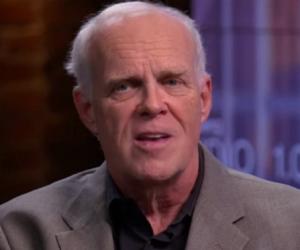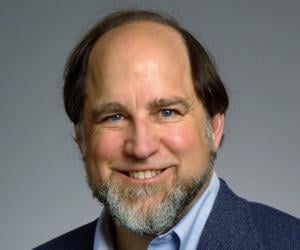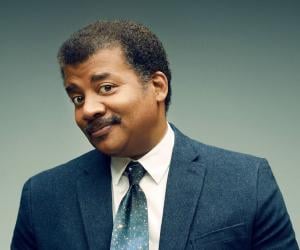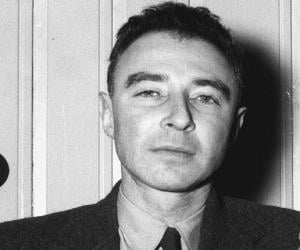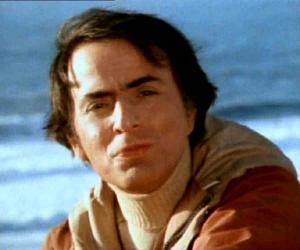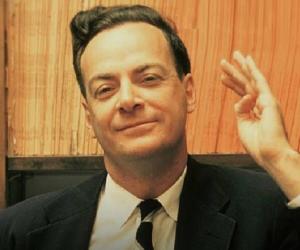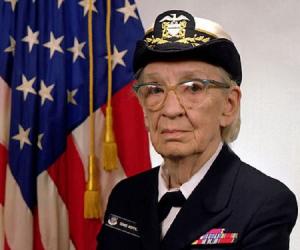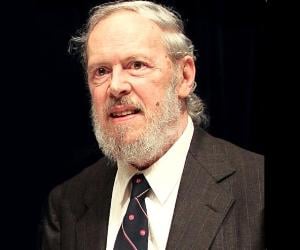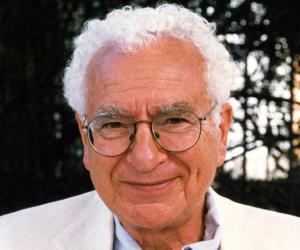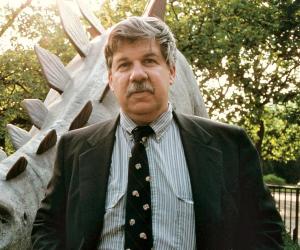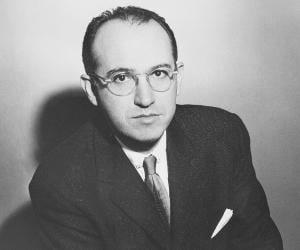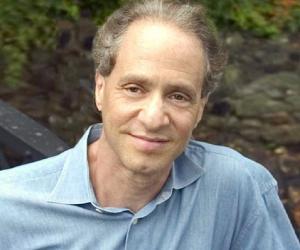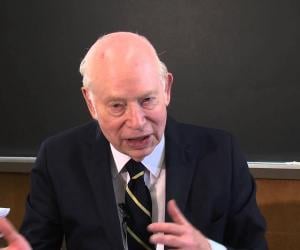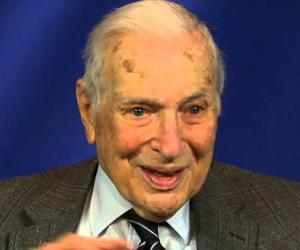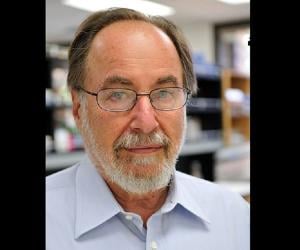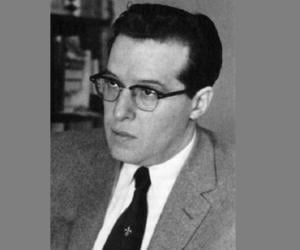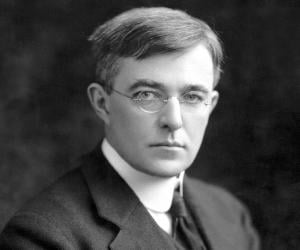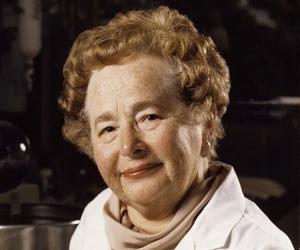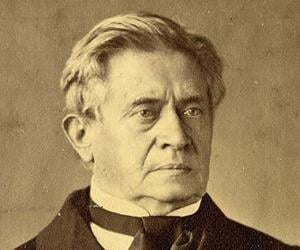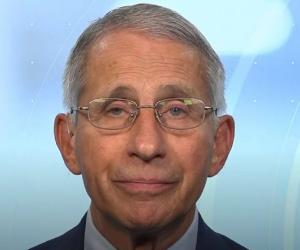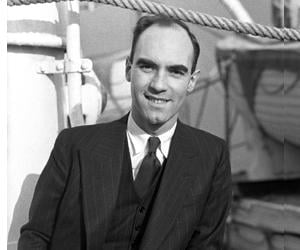Public Welfare Medal-winning astrophysicist and academic Neil deGrasse Tyson hosted shows such as NOVA ScienceNow, Cosmos: A Spacetime Odyssey, and Star Talk. He is the director of Hayden Planetarium and contributed to the dismissal of Pluto’s status as the ninth planet. He has also written a monthly column as "Merlin.”
Hailed as a brilliant scientific mind, American physicist J Robert Oppenheimer, led the Manhattan Project which resulted in the development of atomic bomb during the World War II. The bombs were dropped on the Japanese cities of Hiroshima and Nagasaki in 1945. However, Oppenheimer was in a constant conflict over the moral issue of the weapons of mass destruction and rallied against nuclear proliferation.
Theoretical physicist Richard Feynman won the Nobel Prize in Physics in 1965, along with Julian Schwinger and Shin'ichirō Tomonaga, for his research on quantum electrodynamics. He also contributed to the development of the atomic bomb. Feyman made it to Physics World’s list of the 10 greatest physicists of all time.
Computer scientist, Dennis MacAlistair Ritchie, worked at Bell Labs Computing Sciences Research Center for most of his career, co-developing the Unix operating system and B programming language with Kenneth Thompson, co-winning the 1983 A.M. Turing Award for it. Earlier, he had also created C programming language and was involved with the development of the Plan 9 and Inferno operating systems.
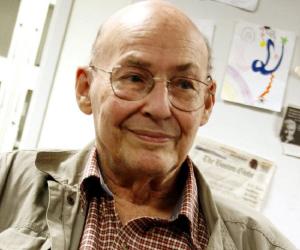
Nobel Prize-winning American physicist Murray Gell-Mann is best remembered for his research on elementary particles. The Yale and MIT alumnus later taught at Caltech and is credited with coining the terms "quark" and "strangeness" in quantum physics. A linguistic enthusiast, he also co-established the Evolution of Human Languages program.
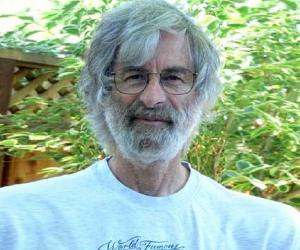
Stephen Jay Gould was an American evolutionary biologist, paleontologist, and historian of science. One of the most widely read and influential authors of popular science, Gould was named a Living Legend in April 2000 by the US Library of Congress. He is also counted among the most frequently cited scientists, as far as evolutionary theory is concerned.

Better known as former U.S. president Donald Trump’s uncle, John G. Trump was an MIT physicist and engineer. Though he had initially aspired to be an architect and join his brother Fred’s real-estate business, John later concentrated on his research that led to the invention of high-voltage generators.
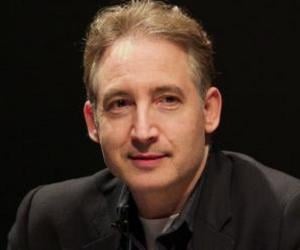
American theoretical physicist, mathematician, and string theorist Brian Greene is noted for popularising string theory through his books like The Elegant Universe, and The Fabric of the Cosmos and related PBS television specials. Greene taught as professor of physics at Cornell University, and presently serves as a professor at Columbia University. He is the co-founder and chairman of the World Science Festival.
If the world is successful in its fight against polio, the credit goes to American virologist Jonas Salk who developed a vaccine for the disease. Described as a “miracle worker”, his concerns for humanity were reflected in the fact that he did not claim a patent for the vaccine. He founded the Salk Institute for Biological Studies, based in California.
Ray Kurzweil is an American futurist and inventor best known for his work in fields like optical character recognition, speech recognition technology, and text-to-speech synthesis. A proponent of life extension technologies and robotics, Kurzweil was honored with the National Medal of Technology and Innovation in 1999. In 2002, he was inducted into the National Inventors Hall of Fame.
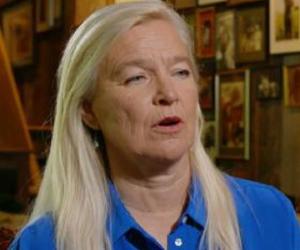
Nell Newman is a biologist, environmentalist, and former child actress. An ardent supporter of sustainable agriculture, Newman is credited with founding a pet food and organic food production company called Newman's Own. For her environmental leadership, Newman was honored with the Rachel Carson Award in 2014. In 2017, she was made an inductee of the Specialty Food Hall of Fame.
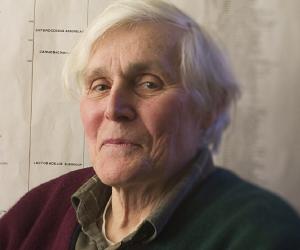
Carl Woese was an American biophysicist and microbiologist. He is credited with originating the RNA world hypothesis as well as pioneering a technique that revolutionized microbiology. In 1992, he was awarded microbiology's highest honor, Leeuwenhoek Medal. In 1995, he was honored with the Selman A. Waksman Award in Microbiology. Carl Woese received the National Medal of Science in 2000.
Nuclear physicist and Nobel laureate Steven Weinberg is known for establishing the electroweak theory, along with Sheldon Lee Glashow and Abdus Salam. He was born to Jewish immigrants in New York and made it to Cornell and Princeton. He is an atheist and supports the Israeli cause.
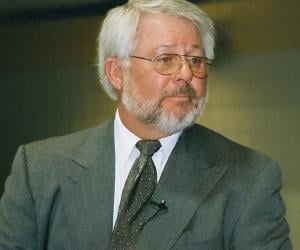
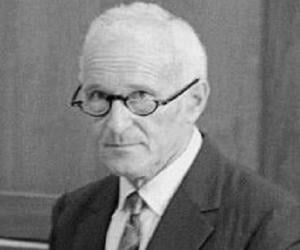
Sidney Gottlieb was an American spymaster and chemist who played a major role in the CIA's mind-control program and assassination attempts during the 1950s and 1960s; the illegal human experimentation program which he headed was called Project MKUltra.
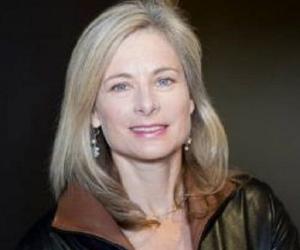
Apart from teaching at Harvard, theoretical physicist Lisa Randall has also held professorships at MIT and Princeton. She has also written several popular books, such as Warped Passages and Knocking on Heaven’s Door. One of Time’s 100 Most Influential People of 2007, she has also written a libretto for an opera.
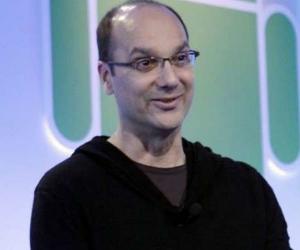
Andy Rubin earned the nickname Android during his time at Apple due to his obsession with robots and later co-founded Android Inc., becoming its CEO. He worked with Google for 9 years but quit the company amid sexual harassment allegations and an employee walk-out over his supposed exit package.
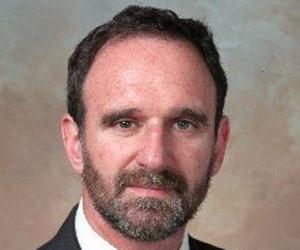
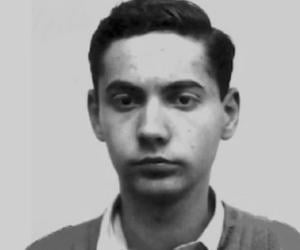
Theodore Hall was an American physicist. He was one of the atomic spies for the Soviet Union during World War II. Hall gave a detailed description of a plutonium bomb named Fat Man to the Soviet Union. He also passed on vital information such as the processes involved for purifying plutonium. His life inspired a documentary titled A Compassionate Spy.
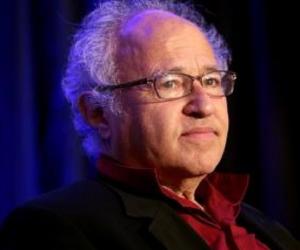
Eminent scholar David D. Friedman has excelled in a wide range of academic areas, including economics, physics, law, and business. The Harvard alumnus is best known for his anarcho-capitalist theories and the book The Machinery of Freedom but has penned countless other books, too, including two science-fiction fantasy novels.
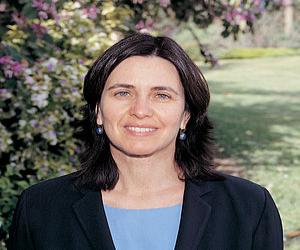
Shafi Goldwasser is a computer scientist who serves as the chief scientist of Duality Technologies which she co-founded in 2016. In 1997, she started serving as RSA Professor at the Massachusetts Institute of Technology (MIT), becoming the institute's first holder of the professorship. In 2012, she was honored with the Turing Award for her work in the field of cryptography.
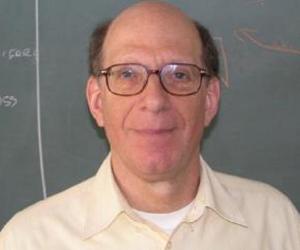
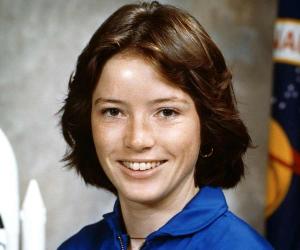
David Baltimore is an American university administrator and biologist. He is currently serving as President Emeritus at the California Institute of Technology (Caltech). He won the 1975 Nobel Prize for Physiology or Medicine for his discoveries concerning the interaction between the genetic material of the cell and tumor viruses. In 1999, he was honored with the National Medal of Science.
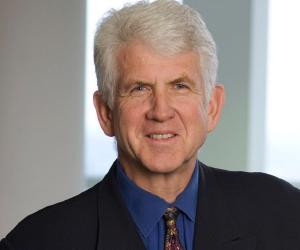
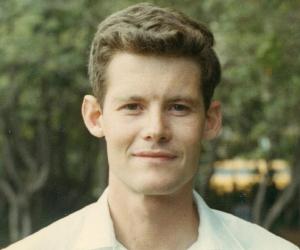
A.M. Turing Award-winning American-Canadian computer scientist Stephen Cook is known for his contribution to the development of the computational complexity theory and laid down the Cook–Levin theorem. The Harvard alumnus has also taught at institutes such as the University of Toronto. He is also an avid sailor and violinist.
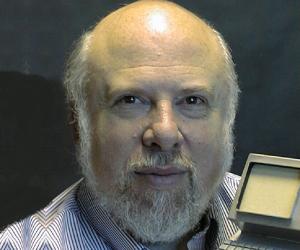
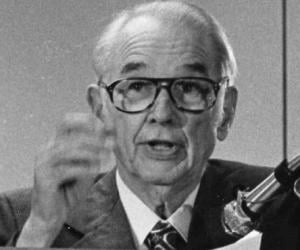
Born to an electrical engineer father and a math teacher mother, John V. Atanasoff grew up to invent the Atanasoff-Berry Computer, which was declared the world’s first electronic digital computer after a legal dispute. The physicist was also an active part of the atomic bomb tests conducted at Bikini Atoll.
Irving Langmuir was an American physicist, chemist, and engineer. He is credited with popularizing the concentric theory of atomic structure. Irving Langmuir is also credited with inventing the hydrogen welding technique and the gas-filled incandescent lamp. In 1932, Langmuir won the Nobel Prize in Chemistry for his contribution to surface chemistry. He also won other prestigious awards like Faraday Medal.
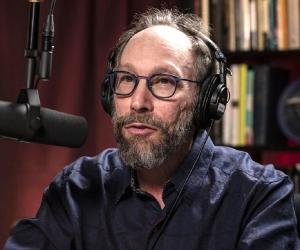
American-Canadian theoretical physicist Lawrence M. Krauss has taught at institutes such as ASU and Yale and also penned several bestselling books. Known for his research on dark energy and zero-energy states, he was later accused of sexual misconduct and thus lost the directorship of the ASU’s Origins Project.
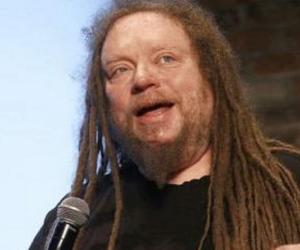
The daughter of Jewish immigrants in New York, Gertrude B. Elion excelled in chemistry at Hunter College, where she studied for free, but was initially unable to find a job due to gender bias. The renowned biochemist and pharmacologist later won a Nobel and became a pioneer in medical research.
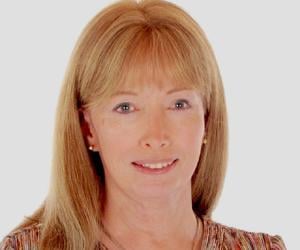
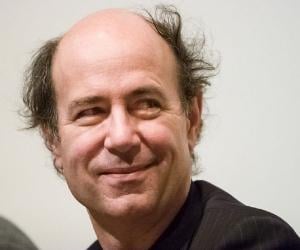
MIT professor and theoretical physicist Frank Wilczek won the Nobel Prize in Physics for his research on asymptotic freedom related to the theory of the strong interaction. An expert in quantum field theory and particle physics, he has penned books both for laymen and physics enthusiasts.
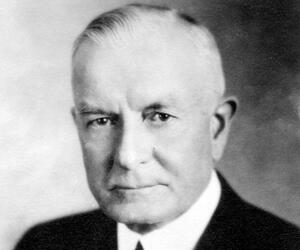
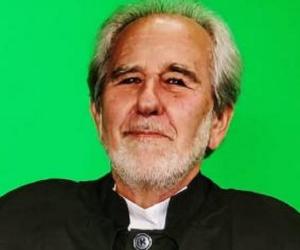
Bruce Lipton is a developmental biologist. He is best known as the author of the book The Biology of Belief, in which he claims that beliefs control human biology rather than DNA and inheritance. He earned a Ph.D. in developmental biology from the University of Virginia and began his academic career. He received the 2009 Goi Peace Award.
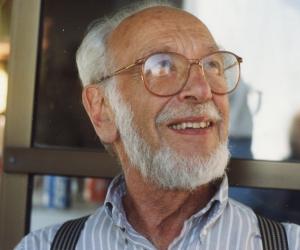
American physician-scientist and immunologist Anthony Fauci serves as director of National Institute of Allergy and Infectious Diseases (NIAID) and Chief Medical Advisor to President Joe Biden. As research scientist and chief of NIAID, Fauci contributed in the areas of HIV/AIDS research and other immunodeficiency diseases and received Presidential Medal of Freedom for his work on the AIDS relief program PEPFAR.
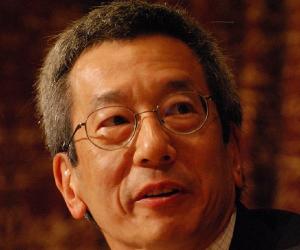
Co-recipient of the 2008 Nobel Prize for Chemistry for discovery and development of the green fluorescent protein, Roger Yonchien Tsien began working on the subject in collaboration with Osamu Shimomura and Martin Chalfie while serving as professor of chemistry and biochemistry at University of California. Also a pioneer of calcium imaging, he is known for developing various dyes including Fura-2.

